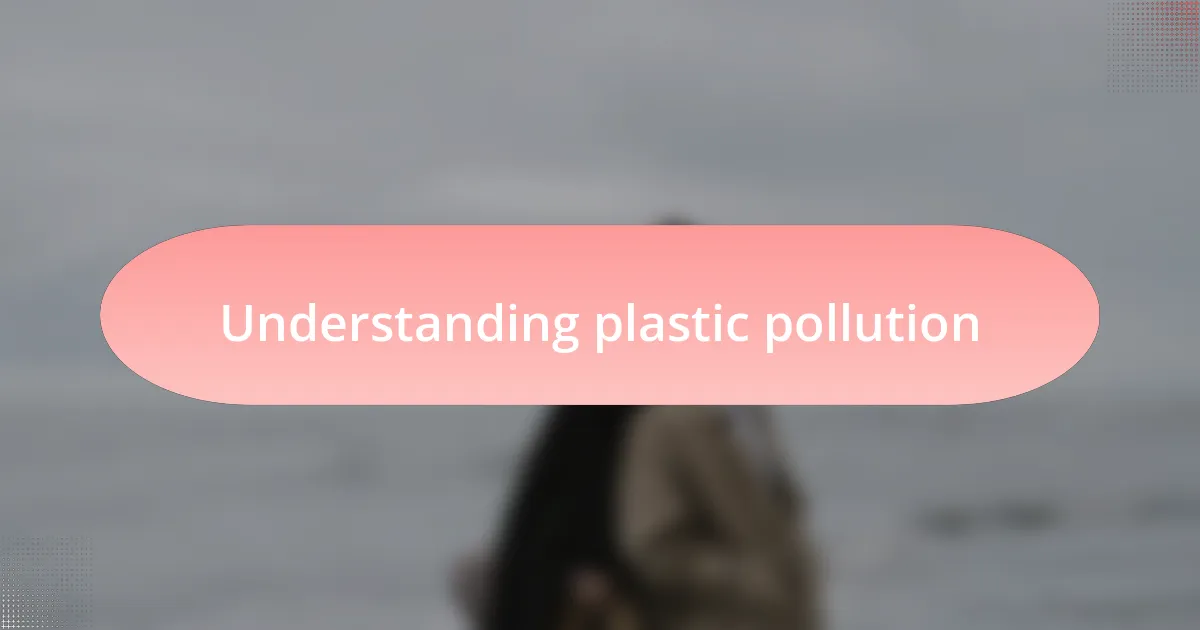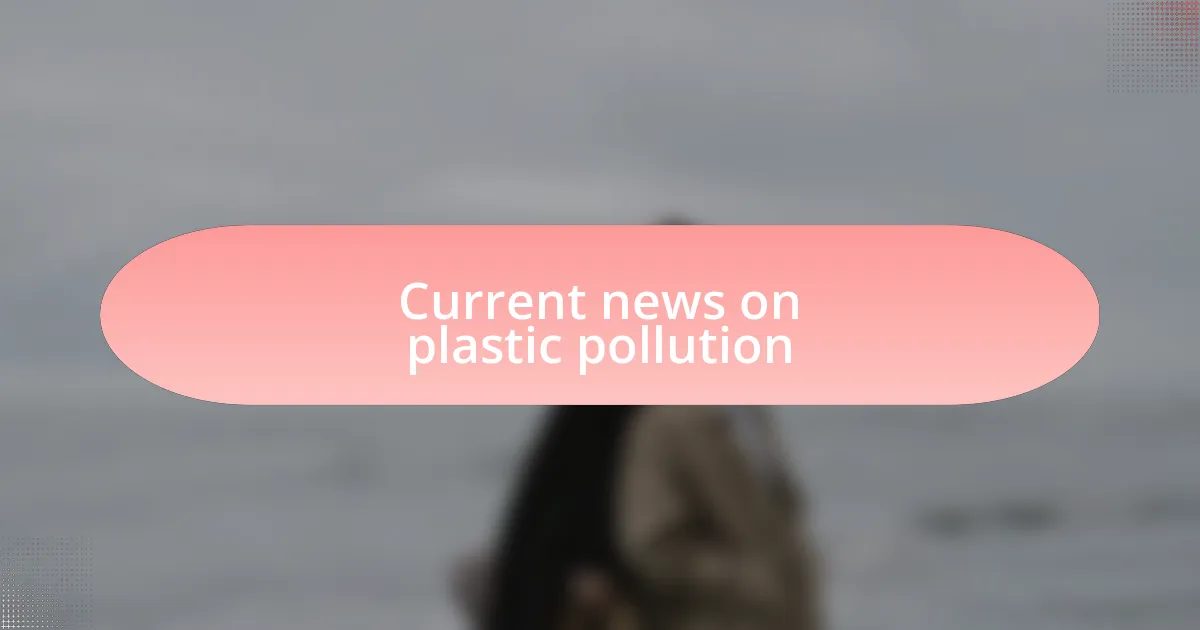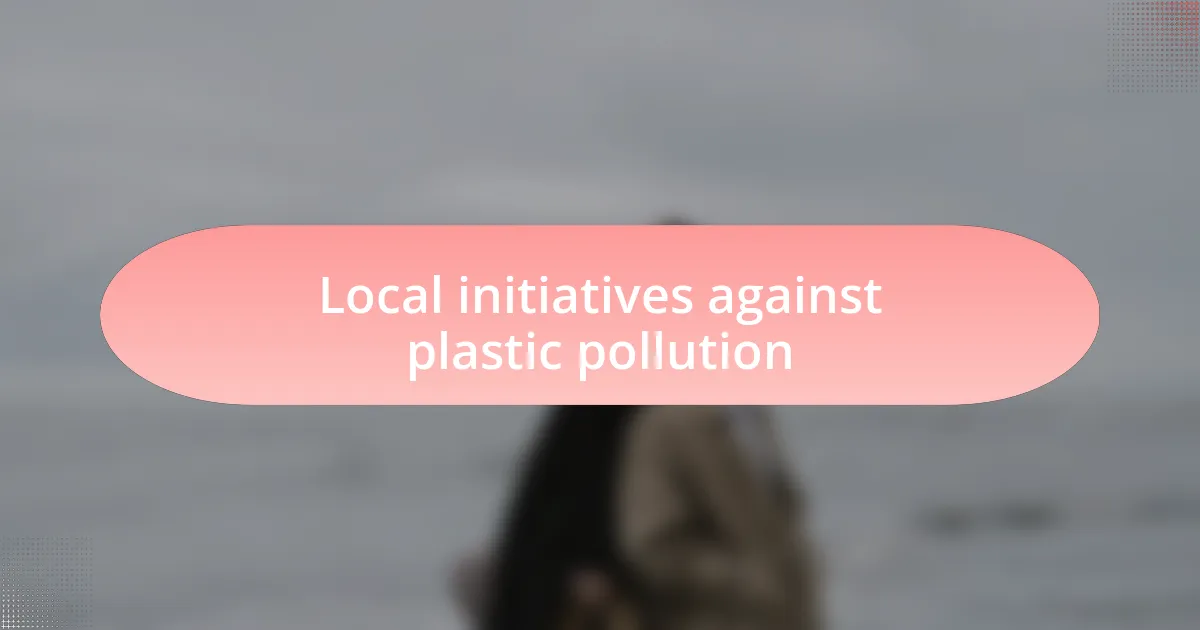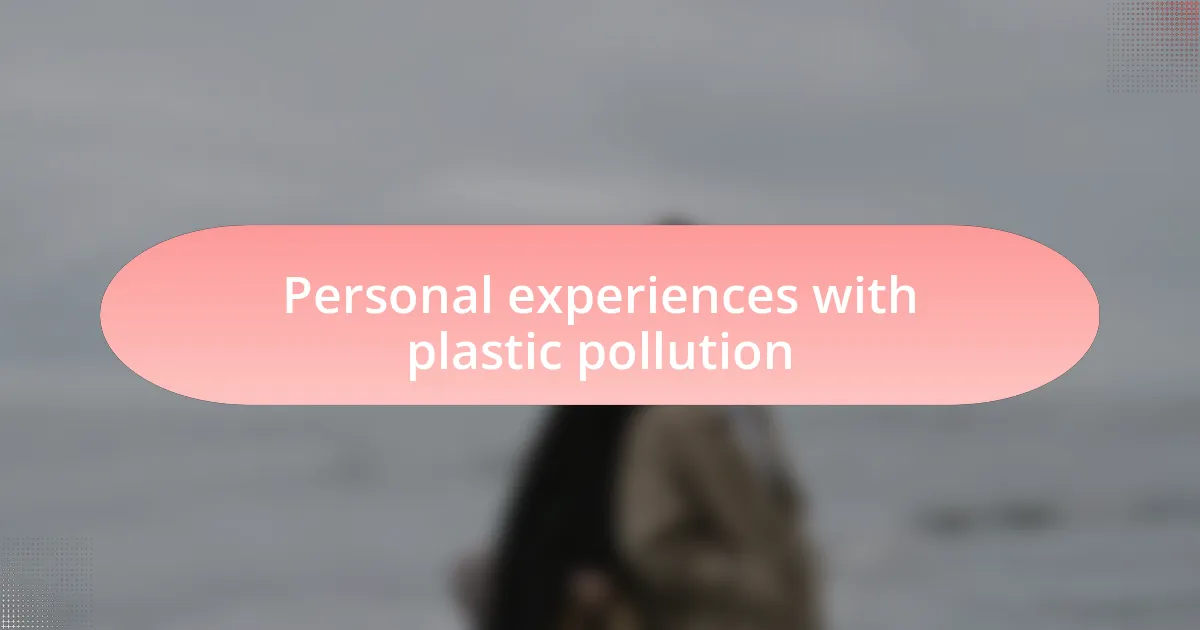Key takeaways:
- Plastic pollution poses a significant environmental and health crisis, with items taking centuries to decompose and microplastics contaminating food and water supplies.
- Local initiatives in South Africa, such as bans on single-use plastics and community clean-up events, demonstrate grassroots efforts to combat the issue effectively.
- Personal experiences and reflections highlight the ongoing struggle between convenience and the responsibility to reduce plastic use in daily life.
- Creative solutions from local entrepreneurs, like turning plastic waste into fashionable products, showcase innovative approaches to tackle plastic pollution.

Understanding plastic pollution
Plastic pollution is a growing environmental crisis that often feels overwhelming. I remember walking along a beach not too long ago, only to see plastic debris scattered everywhere. It struck me then just how pervasive this issue is and how it affects not just wildlife but also our own enjoyment of nature.
When we think about plastic, we often forget that a single piece can take hundreds of years to decompose. Isn’t it alarming to realize that the very items we use for just a few moments can linger in the environment for generations? I felt a deep frustration as I watched a turtle struggling with a plastic bag – it made me consider the long-term consequences of our daily choices.
Moreover, plastic pollution extends beyond the physical waste we see; it also impacts our health. Microplastics have been found in our food and water supplies, raising serious questions about what we’re really consuming. How can we continue to ignore the potential effects on our bodies? This reality amplifies the urgency for change, not just for our planet, but for our well-being, too.

Current news on plastic pollution
Recently, I came across a report highlighting how South Africa has begun implementing new regulations to reduce plastic waste. It’s impressive to see local governments pushing for bans on single-use plastics, especially in areas where pollution has reached critical levels. I can’t help but feel a sense of hope; change often starts at the community level, and this is a positive step towards a cleaner future.
In a rather ironic twist, I encountered a news story about a major beach cleanup event that turned into a large media spectacle. Volunteers gathered by the hundreds, but what struck me most was the sheer volume of plastic collected in just a few hours. It left me pondering: if communities can rally together to clean up these messes, why aren’t we doing more to prevent them in the first place?
On a national scale, a recent study revealed that plastic waste has increased significantly over the past decade in South Africa. As I absorbed this statistic, I felt a growing urgency in my gut. The truth is, if we don’t act decisively now, that upward trend will only continue, drowning our ecosystems and choking our wildlife. What legacy are we leaving for future generations if we ignore these pressing issues?

Local initiatives against plastic pollution
Local communities across South Africa are stepping up in remarkable ways to combat plastic pollution. I recently saw how small-town groups organized regular clean-up days, and the sense of camaraderie among participants was uplifting. It made me wonder, what if every village took on a similar initiative? Just imagine the collective impact we could have.
There’s also an inspiring project called “Plastic Free July” that encourages individuals to avoid single-use plastics for the entire month. Engaging in this challenge sparked a personal reflection for me; even small changes in our daily lives, like carrying reusable bags or opting for bulk items, can contribute to a shift in mindset. How often do we stop to think about the plastic we consume daily?
In urban areas, local entrepreneurs are finding innovative ways to address plastic waste. I came across a startup that turns discarded plastic into fashionable accessories, and it left me fascinated. Not only are they tackling waste, but they’re also inspiring a movement where sustainability meets creativity. Isn’t it encouraging to see real solutions arise from local talents?

Personal experiences with plastic pollution
I vividly remember walking along a beautiful South African coastline, only to be met with the harsh reality of plastic debris scattered across the sand. It was both disheartening and eye-opening; I’ve always loved the ocean, yet seeing plastic bottles and bags littering this natural beauty filled me with a mix of sadness and anger. How did we let it get to this point?
One time, I participated in a community clean-up at a local park. What struck me was the sheer volume of plastic we collected in a matter of hours – it came from picnic areas where families enjoyed their time together. It made me realize that while we often recognize the problem, taking action together can ignite change. Why is it that we often wait for someone else to take the lead?
In my day-to-day life, I’ve made it a point to reduce my plastic use, but I still face challenges. I recall an instance at a grocery store when I forgot my reusable bags. The guilty feeling of having to opt for plastic bags again gnawed at me. Have you ever felt that internal conflict between convenience and responsibility? It’s a constant reminder that addressing plastic pollution is as much about personal choices as it is about collective efforts.